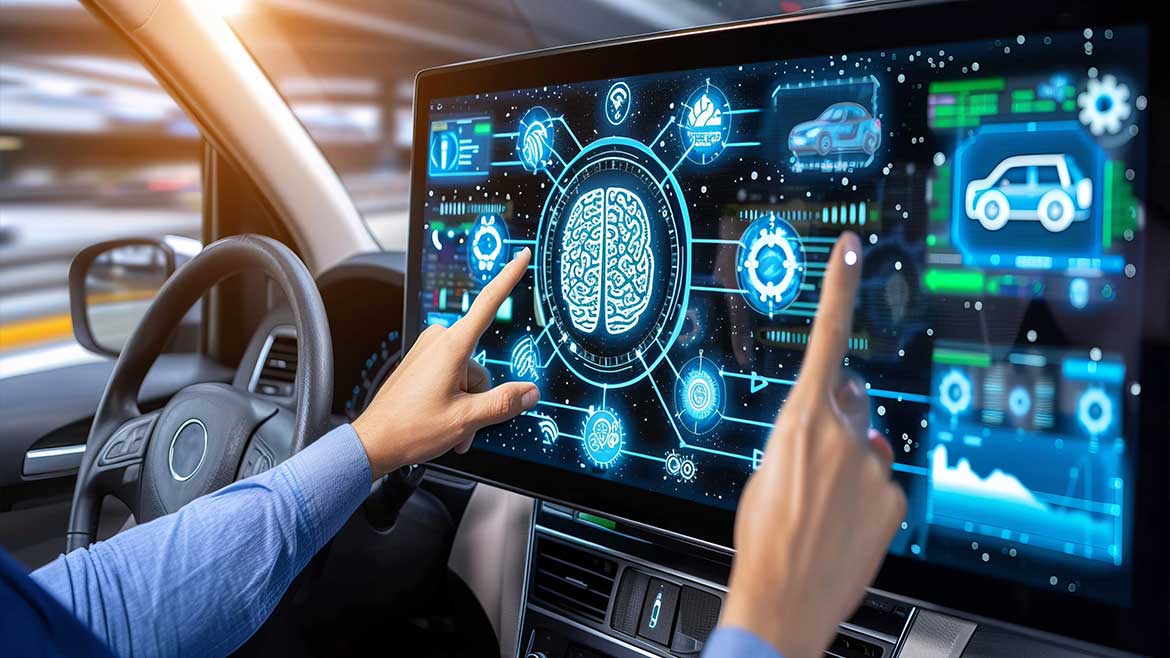Table of Contents
The advent of artificial intelligence (AI) has permeated various aspects of modern life, transforming industries and reshaping societal norms. One of the most impactful areas AI is revolutionizing is road safety. According to the World Health Organization (WHO), over 1.3 million people die annually in road traffic crashes, and tens of millions more suffer injuries. The integration of AI into road safety systems presents an opportunity to drastically reduce these numbers and enhance the overall safety of roadways.
Understanding AI-Powered Road Safety Systems
AI-powered road safety systems utilize advanced technologies such as machine learning, computer vision, and data analytics to predict, prevent, and respond to road incidents. These systems analyze vast amounts of data from various sources, including cameras, sensors, and historical traffic data, to identify patterns and make real-time decisions that enhance road safety.
Key Components of AI-Powered Road Safety Systems
1. Smart Traffic Management Systems
AI-powered traffic management systems optimize traffic flow and reduce congestion, which is a significant cause of road accidents. By analyzing real-time data from traffic cameras, sensors, and GPS devices, these systems can predict traffic patterns and adjust traffic signals accordingly. Cities like Los Angeles and Singapore have implemented AI-driven traffic management systems, resulting in smoother traffic flow and fewer accidents. A study by the National Highway Traffic Safety Administration (NHTSA) found that improved traffic signal timing alone can reduce traffic delays by up to 40% and cut intersection-related accidents by 10%.
2. Predictive Analytics for Accident Prevention
Predictive analytics use historical accident data and real-time information to forecast potential accident hotspots and high-risk scenarios. AI algorithms analyze factors such as weather conditions, traffic volume, and driver behavior to predict where and when accidents are likely to occur. This information allows authorities to take proactive measures, such as deploying police patrols or issuing warnings to drivers.
3. Autonomous Vehicles and Advanced Driver Assistance Systems (ADAS)
Autonomous vehicles (AVs) and ADAS are at the forefront of AI-driven road safety innovations. These technologies use AI to assist or replace human drivers, significantly reducing the likelihood of accidents caused by human error, which accounts for approximately 94% of all road accidents according to the NHTSA. Features like lane-keeping assistance, adaptive cruise control, and automatic emergency braking are now common in modern vehicles, enhancing driver safety.
4. Intelligent Traffic Monitoring and Enforcement
AI-powered surveillance systems monitor traffic in real-time, detecting violations such as speeding, running red lights, and illegal lane changes. These systems can automatically issue fines and alerts, ensuring consistent enforcement of traffic laws. In New York City, the implementation of AI-based traffic cameras has led to a significant decrease in traffic violations and related accidents. Research indicates that automated enforcement can reduce speeding-related accidents by up to 50%.
5. Enhanced Emergency Response Systems
AI can also improve the efficiency of emergency response systems. By analyzing real-time data from accidents, AI can predict the severity of incidents and suggest the optimal response strategies. This includes determining the fastest routes for emergency vehicles and prioritizing resources based on the nature of the accident. In some cities, AI-driven platforms have reduced emergency response times by up to 20%, potentially saving countless lives.
Real-World Impact and Future Prospects
The implementation of AI-powered road safety systems is already showing promising results. For instance, in the United States, the state of Nevada has seen a reduction in traffic fatalities by implementing AI-driven predictive analytics and traffic monitoring systems.
The future of AI in road safety looks even more promising with ongoing advancements in technology. Developments in 5G connectivity will enable faster and more reliable communication between vehicles and infrastructure, further enhancing the effectiveness of AI systems. Additionally, as autonomous vehicles become more prevalent, the potential for a significant reduction in road accidents becomes more attainable.
Challenges and Considerations
Despite the many benefits, the adoption of AI-powered road safety systems also presents several challenges. Privacy concerns are paramount, as these systems often require the collection and analysis of vast amounts of data, including personal information. Ensuring the security of this.
Moreover, the integration of AI into existing infrastructure requires significant investment and coordination among various stakeholders, including government agencies, technology companies, and the public. There is also the challenge of ensuring that AI systems are transparent, unbiased, and do not inadvertently create new safety issues.
AI-powered road safety systems represent a revolutionary step forward in the quest to make roadways safer. By leveraging advanced technologies to predict, prevent, and respond to road incidents, these systems have the potential to save lives and reduce injuries on a global scale. While challenges remain, the continued development and deployment of AI in road safety hold the promise of a future where road accidents are significantly diminished, and our roads are safer for everyone.


